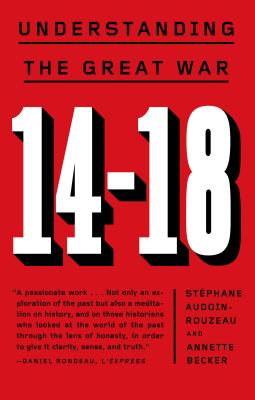
description
ve book, reissued for the 100th anniversary of the beginning of World War I, Stéphane Audoin-Rouzeau and Annette Becker have shown that the Great War was the matrix on which all subsequent disasters of the twentieth century were formed. Three elements of the conflict, all too often neglected or denied, are identified as those that must be grasped if we are to understand the war: First, what inspired its unprecedented physical brutality, and what were the effects of tolerating such violence? Second, how did citizens of the belligerent states come to be driven by vehement nationalistic and racist impulses? Third, how did the tens of millions bereaved by the war come to terms with the agonizing pain? With its strikingly original interpretative strength and its wealth of compelling documentary evidence drawn from all sides in the conflict, 14-18: Understanding the Great War has quickly established itself as a classic in the history of modern warfare.
member goods
No member items were found under this heading.
Return Policy
All sales are final
Shipping
No special shipping considerations available.
Shipping fees determined at checkout.







